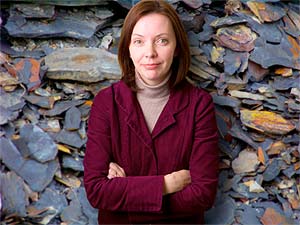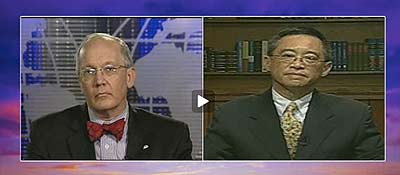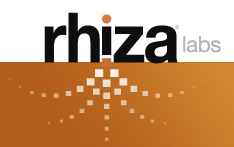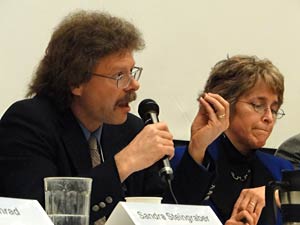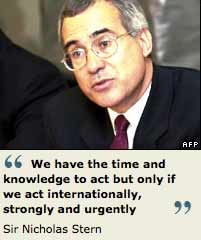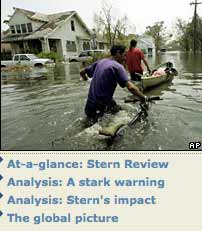Experts
History of hydraulic fracturing | criticism of the 2004 EPA study.
I am writing on behalf of the Oil and Gas Accountability Project to provide an impartial analysis of the adequacy of the actions proposed in the subject report. I am a practicing hydrogeologist; I spent 32 years at the U.S. Geological Survey in both management and research positions. I left the USGS in 1995 to become a consultant. I have published more than 100 papers in the refereed scientific literature on various groundwater problems. My resume is attached to this comment.
Coal-bed methane is an energy source that in many places in the United States is associated with underground sources of drinking water (USDW). In some places the coal beds are the best aquifers in the area. In these places the development of CBM is incompatible with the continued use of the coal beds as an aquifer.
There is a direct conflict between national/state energy policy and the preservation of USDW. For example, in the Powder River Basin of Wyoming and Montana the Bureau of Land Management predicts, in their Final Environmental Impact Statement for CBM, that the development will lower the water levels in the coal measures by 600 to 800 feet over much of the basin.
This will make unusable several thousand private water wells that are completed in the coal beds. The law favors the development of the methane over the continued use of the coal beds as aquifers—in this case the best aquifers in the area.
...EPA discounted problems associated with hydraulic fractures based upon a limited sample of identified problems. They relied upon citizen reports almost exclusively. There were no independent surveys, no independent field investigation or other well sampling. The EPA exercise is incomplete at best.
...EPA seems caught up in the conflict between the National Energy Policy of the Bush Administration and the EPA mandate to protect USDW.
Letter written by Hydrology expert, John D, Bredehoeft, to Joan Harrigan-Farrelly: Chief Underground Injection Control, Prevention Program Office of Ground Water and Drinking Water Environmental Protection Agency.
RE: EPA draft study report:Evaluation of Impacts to Underground Sources of Drinking Water by Hydraulic Fracturing of Coalbed Methane Reservoirs: Subject: Federal Register August 28, 2002, Volume 67, Number 10, Pages55249-55251 (water Docket Id no. w-01-09-11).
See also: Bredehoeft, J. (2003). " From Models to Performance Assessment: The Conceptualization Problem." Ground Water, Vol. 41, No.5 pp 571-577.
Sourcewatch page provides overview including links to directors, funders, and board members.
See FAS page on Earth Systems:
"Over the next century the earth’s resilience and adaptive capabilities will be stressed by the demands of global climate change, environmental degradation, a population increase of two billion people, and the accompanying increased resource and energy demand.
These stresses will place an additional burden upon the earth’s natural systems and the processes and resources that drive these systems. Future system scarcities and imbalances represent a security concern with the potential to destabilize and weaken existing political, social, and economic structures. And as these natural systems are inherently highly interdependent, it is necessary for them to be analyzed and considered systemically.
The Earth Systems Program seeks to address these issues by developing and promoting sustainable, scientifically sound, and inclusive solutions, policies, and technological developments."
"The Federation of American Scientists (FAS) was founded in 1945 by scientists who had worked on the Manhattan Project to develop the first atomic bombs. These scientists recognized that science had become central to many key public policy questions. They believed that scientists had a unique responsibility to both warn the public and policy leaders of potential dangers from scientific and technical advances and to show how good policy could increase the benefits of new scientific knowledge."
FAS works to challenge excessive government secrecy and promote public oversight with their FAS Project on Government Secrecy. Part of the project includes the distribution of the free electronic newsletter Secrecy News, which provides informal coverage of new developments in secrecy, security and intelligence policies.
Includes video interview with Hans Bethe on Atomic weapons.
Please note that information taken from Wikis should be verified using other, more reliable sources. It is a good place to start research, but because anyone can edit a Wiki, we do not recommend using it in research papers or to obtain highly reliable information.
During last year's presidential campaign, Richard B. Cheney acknowledged that the oil-field supply corporation he headed, Halliburton Co., did business with Libya and Iran through foreign subsidiaries. But he insisted that he had imposed a "firm policy" against trading with Iraq.
"Iraq's different," he said...
Cheney has offered contradictory accounts of how much he knew about Halliburton's dealings with Iraq. In a July 30, 2000, interview on ABC-TV's "This Week," he denied that Halliburton or its subsidiaries traded with Baghdad.
"I had a firm policy that we wouldn't do anything in Iraq, even arrangements that were supposedly legal," he said. "We've not done any business in Iraq since U.N. sanctions were imposed on Iraq in 1990, and I had a standing policy that I wouldn't do that."
Cheney modified his response in an interview on the same program three weeks later, after he was informed that a Halliburton spokesman had acknowledged that Dresser Rand and Ingersoll Dresser Pump traded with Iraq. He said he was unaware that the subsidiaries were doing business with the Iraqi regime when Halliburton purchased Dresser Industries in September 1998.
See: Halliburton on Fracking Resource Guide.
Global Policy Forum is an independent policy watchdog that monitors the work of the United Nations and scrutinizes global policymaking. GPF works particularly on the UN Security Council, the food and hunger crisis, and the global economy. We promote accountability and citizen participation in decisions on peace and security, social justice and international law.
GPF gathers information and circulates it through a comprehensive and heavily-visited website, as well as through frequent media interviews. We play an active role in NGO networks and other advocacy arenas. We organize meetings and conferences and we publish original research and policy papers.
GPF analyzes deep and persistent structures of power and dissects rapidly-emerging issues and crises. GPF's work challenges mainstream thinking and questions conventional wisdom. We seek egalitarian, cooperative, peaceful and sustainable solutions to the world's great problems.
See: FCPA Blog | UK Court Won't Block Telser Extradition
See: Fracking Resource Guide | Halliburton (updated)
See: Halliburton's Interests Assisted by White House - Los Angeles Times
Not So Fast, Natural Gas: Why Accelerating Risky Drilling Threatens America’s Water
Some energy analysts are predicting that natural gas will be the fuel of the future if advances in drilling technology allow drillers to tap into domestic shale rock formations on a large scale. But because of the impacts that the technology can have on water, natural gas could become our next energy disaster.
Food & Water Watch works to ensure the food, water and fish we consume is safe, accessible and sustainably produced.
Learn more: read about our victories.
See: Poisoned Profits
See: Blue Covenant
See: Tox Town
UB geologist Tracy Bank and colleagues found that uranium and hydrocarbons in Marcellus shale are not just physically, but also chemically, bound.
Scientific and political disputes over drilling Marcellus shale for natural gas have focused primarily on the environmental effects of pumping millions of gallons of water and chemicals deep underground to blast through rocks to release the natural gas.
But University at Buffalo researchers have now found that that process -- called hydraulic fracturing or "fracking"-- also causes uranium that is naturally trapped inside Marcellus shale to be released, raising additional environmental concerns.
The research will be presented at the annual meeting of the Geological Society of America in Denver on Nov. 2.
See: Casey Junkins. November 20, 2010. The Intelligencer Wheeling News-Register. "Profs: Wells Pose Threat: Fracking lets loose uranium, other hazards".
Dan Bain, assistant professor of geology at Pitt, and Radisav Vidic, professor of environmental engineering at Pitt, expressed concern about drilling for gas in areas throughout West Virginia and Pennsylvania because of the region's great history of coal production.
"Pennsylvania is filled with abandoned coal mines. I don't want to see this happen with gas drilling," Bain said.
An AB Resources well site about 6 miles outside Moundsville's city limits was home to a June 7 explosion, due to workers breaching a pocket of methane in an old coal mine. After injuring several workers, the charge ignited a large fireball that burned for several days.
The Collaborative on Health and the Environment (CHE) is an international partnership committed to strengthening the scientific and public dialogue on the impact of environmental factors on human health...
Underlying all of CHE's activities is a commitment to strong, uncompromised science. CHE Partners share the conviction that under conditions of scientific uncertainty, when evidence of the potential for harm to human health and the environment is scientifically compelling, precautionary measures that emphasize exposure prevention should be undertaken.
After decades of declining US natural-gas production, a new and powerful drilling technique that fractures rock with high-pressure fluid is opening up vast shale-gas deposits in Texas, Colorado and now many parts of the Northeast.
Hydraulic fracturing or "fracking" injects tons of toxic chemicals into the ground in order to break up shale beds rich in natural gas. Researchers, health and environment experts, and community groups have expressed strong concerns about these chemicals contributing significantly to air and water pollution.
The shale gas reserves, however, are seen by a number of companies, states and landowners as an enticing economic opportunity that could reap billions while lowering residential heating bills. The Environmental Protection Agency began public hearings last March to investigate the issue, and a number of citizen protests have recently been held in regions where fracking is already being undertaken or proposed.
This CHE Partner call featured four leading researchers in different fields of expertise to discuss the potential human and environmental health implications of fracking.
Featured speakers included:
- Sandra Steingraber, PhD, author of Living Downstream
- Theo Colborn, PhD, President, The Endocrine Disruption Exchange (TEDX)
- Tony Ingraffea, PhD, PE, Cornell University
- Weston Wilson, Retired EPA Region 8.
See: Poisoned profits : the toxic assault on our children
See: The Case for a Truth and Reconciliation Commission on Toxic Hazards
Sharon Wilson, Texas OGAP Organizer was flown to EPA headquarters in North Carolina to present four case studies of health impacts caused by natural gas extraction in the Barnett Shale. She met with the top rule makers in the Office of Air Quality Planning and Standards who are working on new rules for the oil and gas industry.
See: Barnett Shale Health Impacts - Case Studies
She brings our attention to the disruptive health impacts of mountain-top removal for frac sand in Chippewa, Wisconsin. Read her post on Bluedaze, Mountain Top Removal for Hydraulic Fracturing Sand.
"Walter, do you believe natural gas can be extracted in an environmentally safe manner?
WALTER HANG: Not under the current regulatory scheme. If they do things better, if they require financial surety, we will find out. But under the existing regs, it cannot be done safely. The data proved that beyond a shadow of a doubt."
Richard Haut is from Houston Advanced Research Center and is an expert on hydrofracking. Walter Hang is President of Toxics Targeting, and provides data to engineers, municipalities and homeowners on possibly contaminated properties.
See: Mixplex articles on Global Warming Experts and Climate Science Watch to read more about the compelling reasons to watchdog government regulation at best and challenge those who claim that peer-reviewed scientific analysis will weaken business development and national security.
The opportunities to have both an educated public and the scientific community comment on the many environmental impact statements required for the mining and extractiive industries is a benefit to both the public and industry according to this report: Pew Environment Group (PEG) Factsheet: Industry Opposition to Government Regulation (PDF), October 14, 2010. (Neil Zusman, 2010-08-28).
See also: Environmental Integrity Project (EIP)
EIP combines research, reporting, and media outreach to spotlight illegal pollution, expose political intimidation of enforcement staff, and encourage federal and state agencies to take enforcement action to stop these practices.
See also: Nora Eisenberg. Onshore Drilling Disasters Waiting to Happen: An Interview With 'Gasland' Director Josh Fox | The Nation
Eisenberg: In your sleuthing, what was the most surprising discovery you made?
Josh Fox: Most baffling to me was how much the gas industry was able to get away with—like [insisting] that drilling is safe. Most people when they sign the lease don't realize that what they're in for is a complete industrialization of their property and an enormous problem with their air and water. The gas industry is somehow able to move into an area and say that everything is going to be just fine, you're just going to make a lot of money.
See: Gasland Trailer
Rhiza Labs | Online Mapping Software for exploring, visualizing, and sharing crowdsourced data on the web.
June 30, 2010
Geo Animation: Marcellus Shale Permits in PA Over Time
by Josh Knauer
Here at Rhiza Labs, we’re really excited to have a whole bunch of new public projects launching with our clients. These clients are pioneers who are exploring new ways to encourage communities of interest to aggregate data and share it publicly, while also providing these communities with incredibly powerful data analysis and visualization tools. One of the latest projects to launch, FracTracker.org, involves many dozens of community organizations that want to tract the impacts of Marcellus Shale gas wells in their communities.
I wanted to see how widespread this type of gas well drilling practice was, so I took the Marcellus Shale gas well permit data from the PA Dept of Environmental Protection and created a quick snapshot of the data, and then just clicked on the Action button in the upper right corner of the snapshot page and chose the options “Download as –> KML” to bring it into Google Earth. I then just hit “play” on the time slider within Google Earth.
"Our quality of life has an unquenchable thirst for energy. Offshore drilling and production helps to satisfy this thirst." --Richard Haut
Extracting energy requires trade-offs. “We want clean air, but we also like the convenience of electricity,” said Richard Haut during a lunch-hour seminar last Tuesday. Haut, founder and senior research scientist at Houston Advanced Research Center (HARC), visited Cornell to promote what he calls “environ- mentally friendly drilling systems.”
But his talk left many people hungry for answers...
Haut embraces the idea that drilling is coming and the only question is how to minimize the damage. Take hydraulic fracturing: about 50 percent of all wells drilled into shale, tight gas and coal-bed methane formations use fracking. Within 25 years, he said, 75 percent of all gas wells will be fracked.
“But the typical frack site is an accident waiting to happen,” Haut said, pointing out potential spills, pit leaks and heavy truck traffic. Another issue is dealing with flow- back and produced waste fluids. Haut showed examples of mobile treatment units but never described the technology under development...
The problem with Haut’s environmentally friendly drilling approach, says Cornell engineering professor Tony Ingraffea, is that it reflects the worldview that shale gas development is inevitable, so we just have to “do it right.” This precludes true scientific investigation of many issues that this development presents, he said, noting that instead it focused on technology, such as how to build a well less likely to leak. “Such a view is also an admission that the thousands of shale gas wells already made, and those underway now, are not ‘being done right’,” Ingraffea said.
Physicist Bill Podulka agrees.
“The wide array of acknowledged problems and lack of currently available solutions underscores what many gas drilling critics have been saying: this technology is not ready.” What was missing, Podulka says, is discussion about excluding drilling from areas too socially or environmentally fragile. Instead, he said, the context boiled down to “how do we allow business as usual while bringing environmental damage down to a level we can tolerate?”
See: Gasland - The Debate
According to Sourcewatch, The Heartland Institute 2009 International Conference on Climate Change, held March 8-10th in New York at the Marriott New York Marquis Times Square Hotel, brought together scientists, economists, legal experts, and other climate specialists to "confront the issue of global warming."
These specialists, all climate change skeptics, aim to call attention "to new research that contradicts claims that Earth’s moderate warming during the 20th Century primarily was man-made and has reached crisis proportions."
See: The 2009 International Conference on Climate Change.
The conference was organised and "sponsored" by the Heartland Institute, a U.S. think tank that in preceding years received substantial funding from Exxon for its work downplaying the significance of global warming.
Please note that information taken from Sourcewatch should be verified using other, more reliable sources. It is a good place to start research, but because anyone can edit Sourcewatch, we do not recommend using it in research papers or to obtain highly reliable information.
See: BBC News. Oct. 31, 2006. "Climate change fight 'can't wait'"
The world cannot afford to wait before tackling climate change, the UK prime minister has warned.
A report by economist Sir Nicholas Stern suggests that global warming could shrink the global economy by 20%.
But taking action now would cost just 1% of global gross domestic product, the 700-page study says. (Executive Summary, PDF, 27 pp.)
See: Alan I. Leshner. Dec. 9, 2009. Washington Post. "Don't let the climate doubters fool you."
See: The American Association for the Advancement of Science (AAAS) Reaffirms Statements on Climate Change and Integrity. 12/04/09.
See: Commentary: Dr. Michael J. Economides, editor-in-chief of the Energy Tribune, says environmentalists wrong on hydrofracking. Economides was short-listed for the EPA 2010 Hydraulic Fracturing Study.
Michael J. Economides is the editor of The Energy Tribune, and Professor of Chemical and Biomolecular Engineering at the University of Houston.
See: Ann Alexander. Oct. 22, 2010. NRDC Switchboard. "Climate change denial from the Book of Hesitations".












